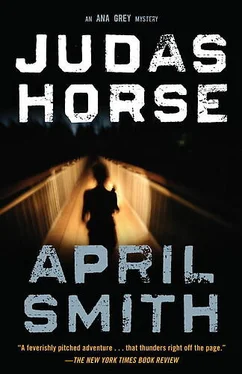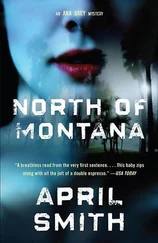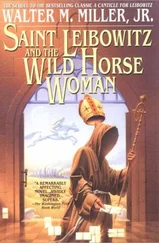I was in there only once, on the pretext of going down to the basement to get laundry detergent.
Megan had been working on her quilt. A Christian station played on the radio. Megan likes that because it reminds her of her childhood. She was the eldest of five, growing up in an austere minister’s home in snowy northern Michigan. All the other siblings took up charitable work. One of her sisters was killed on a mission to Africa, but Megan doesn’t say how.
The large frame that holds the quilt barely leaves enough space for a couple of hanging bicycles and metal shelves with household supplies — canned food and bleach. In an L-shaped room beyond, they have installed an industrial stove for the seasonal chore of making hazelnut brittle.
It was damp in the basement and Megan was wearing a plum red shawl over an Indian blouse with fringes at the hem, a peaceful look on her face as she sewed patches on the quilt. I noticed a glass and half-empty bottle of wine on the floor. The door to Stone’s shop was open, yellow light spilling out. It was almost romantic to imagine them on winter nights, pursuing their rustic hobbies side by side.
I filled the canister from a bin of laundry detergent, then wandered over to the woodworking shop, where Stone was applying lacquer to a cross section of tree trunk perched on a pair of sawhorses.
“What are you making?”
“A table.”
“What kind of wood is that?”
“Douglas fir.”
“It looks like marble.”
Quickly, I advanced through the doorway, sucking in the details like an alien invader: Table saw. Drill press. High window at ground level. Built-in cabinets, home-improvement clutter.
“Thirty coats of varnish. That’s how I get it to look like marble.” Jars, tiny drawers of screws and nails; pliers, drills, drill bits, chisels. A pair of steel storage cabinets with a padlock.
“The grain is beautiful. How do you know where to cut it?” “You have to read the wood.” He dragged a blackened fingertip across the polished slab. “See that darkness? That’s when the tree began to die.” I saw a black cloud, like a squirt of ink, spreading V-like through the amber rings of growth.
“That’s death. You’re looking at it,” Dick Stone said.
He keeps the guns in the locked cabinets.
At that moment, in the workshop fragrant with cedar dust and hard work, he could almost pass for exactly what he seemed: a hazelnut farmer with eager, skilled hands, awed by the inevitability of nature.
But then I saw the videocassette of Apocalypse Now on the workbench. I was certain I had just seen it, moments before, upstairs.
“You must really like that video to have two copies.”
Dick Stone said briefly, “It’s the greatest movie ever made.”
Icannot get into the workshop again until one rare morning when they’ve all gone into town and Dick Stone has left for a run. I wait fifteen minutes after he’s gone, and then hustle down the basement steps, clutching the set of lock picks delivered earlier by an FBI agent posing as a U.S. postal worker. In undercover school at Quantico, we ran time tests for defeating dead bolts; Stone’s workout has handed me at least an hour.
It takes only five minutes to blow Operation Wildcat sky-high.
Inserting a tension wrench into the keyhole of the cylinder and then alternating several picks, I finally find the one with the right angle to lift each pin. The plug rotates and the lock opens.
The door to Dick Stone’s woodshop swings wide. I hesitate, as if someone is waiting in ambush. Sterling McCord, maybe. He has a way of appearing when you least expect him. But there is nothing. Dead air. I pull out a penlight and aim it at the floor.
As the light passes the legs of the sawhorse that holds the fir table, a wastebasket flips, and brown mice scatter. The scent of orange peel rises from the garbage. I right the wastebasket. My heart is racing and I have to pee. The smell of resin and lacquer in the enclosed space is dizzying.
I seriously hope there are no more mice.
The cone of light walks up the tall steel cabinet and stops at the padlock that secures the handles. This one is a common tumbler lock, using wafers instead of pins, and can be picked the same way. I’m getting good at this. The tumbler clicks and the hasp slides open.
Alone at the bottom of the quiet house, I insert the penlight between my teeth and open the cabinet doors, anxious to reveal Stone’s secret arsenal — expecting to find the sniper rifle, automatic weapons, Tovex explosives.
Instead, I am looking at a four-split television monitor.
In each corner of the screen is a different view of the empty house: living room, kitchen, sewing room, stairs.
It is an arsenal all right: a sophisticated wireless surveillance system, including a high-sensitivity receiver, whip antenna, and down converter.
Before I can begin to think of a way to cover up this horrendous breach of Stone’s security system, I notice the cassette of Apocalypse Now is resting on the upper shelf of the cabinet. I know he loves the movie, but why hide it in here?
The moment I pick it up, the quadrants on the TV monitor flip to four different views — driveway, bathroom, attic, inside the cabinet —and there is Special Agent Ana Grey, staring into the camera like a bonehead tourist. As I move the cassette, my image on the split screen moves accordingly.
Stone has hidden a tiny camera in the spine of Apocalypse Now. He kept the camera aimed from the shelf in the living room, but he must have switched it for the real videotape when I noticed there were two. He has the whole place under constant surveillance. I can see from the monitor there is even a covert camera inside the German wall clock, keeping watch on who’s going up the stairs. And who’s been searching the house.
The apocalypse is looking at me now, through the pinhole of a live camera, less than an eighth of an inch in diameter.
My nose, on the screen, is as big as the snout of a moose.
That night at 1:00 a.m., a flashlight shines in my face.
“Get up,” says Stone.
I am already up, speed-dialing a thousand explanations. I have avoided him all day.
“You broke into my shop.”
“What are you talking about?”
I swing out of bed, but he pushes me down, his hand squarely on my chest.
“You broke into my workroom and my personal cabinets.” “Why would I do that? It’s the dumbest thing in the world.” “It’s all on tape, Darcy.”
I say nothing.
Neither affirm nor deny.
“Yeah.” He nods, reading my face. “That’s right. You’re toast.” I notice Sara is not in her bed. He has me alone. He has set the stage for — what?
“All right!” I shout, and surprise him by lunging for the wall switch, defiantly flicking on the light, making him squint.
“I did break into your shop, and I’ll tell you why I—” “Is that so?”
He sits beside me and the mattress sinks. Again, that scent of male, and the threat of two hundred pounds of leaned-out muscle and bone. He’s wearing a loose rayon shirt and jeans, long, hairy toes blackened with sawdust gripping the shower thongs that pass for slippers. He must have just come from the basement, checking his daily surveillance tapes.
“Everything around this place is a huge big secret,” I rant on. “I’ve been here weeks, and you still don’t trust me? Now I find out you’re spying on us ? Your own people, who live in your house?” “It’s for everyone’s protection.”
“What if those tapes wind up on the Internet? Or maybe this whole operation is some kind of a setup.” “Setup for what?”
Читать дальше












